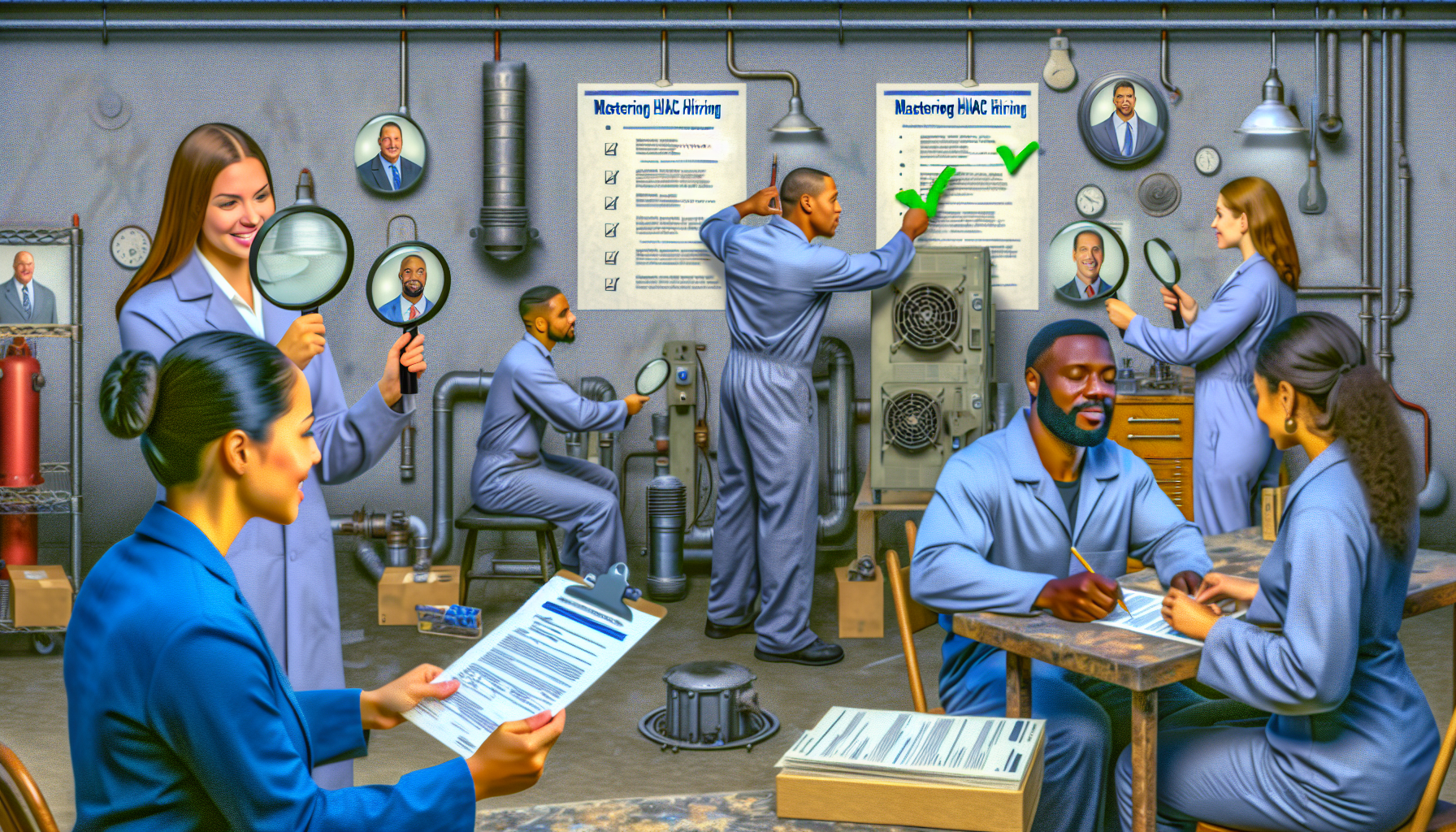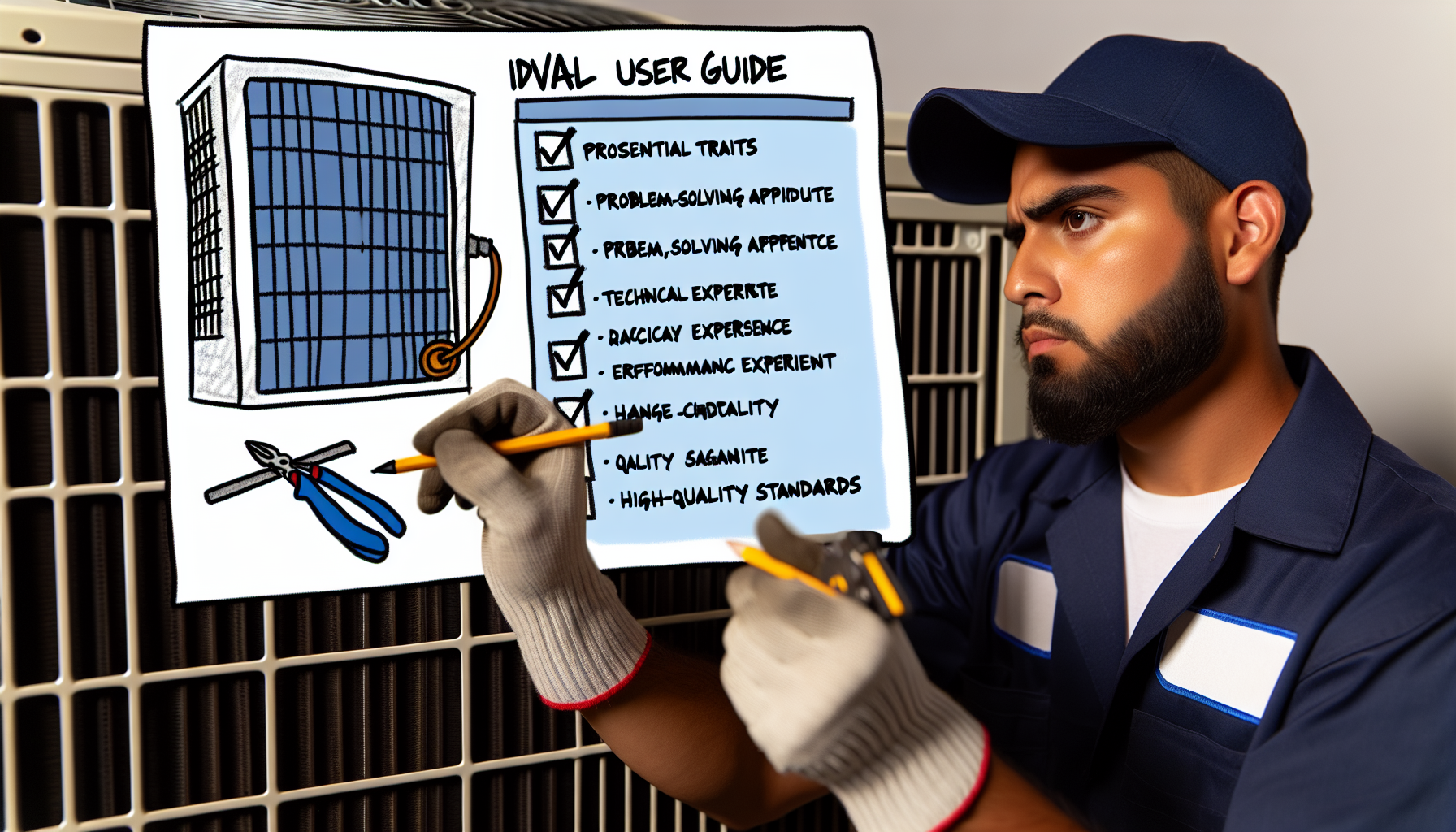Introduction
Finding the right HVAC technician is not just about filling an open position; it’s about enhancing your team’s capabilities and ensuring your clients receive exceptional service. In this competitive field, attracting and selecting the best candidate requires a strategic approach. In this blog post, we’ll delve into the key steps you need to take to unlock the secrets of successfully hiring your next HVAC technician.
Understanding the Importance of a Qualified HVAC Technician
An HVAC system is at the heart of any residential or commercial building, which makes the role of an HVAC technician critical. They are responsible for installing, maintaining, and repairing these systems, ensuring indoor environments remain healthy and comfortable. The success of your HVAC business hinges on the capabilities of your technicians, thus hiring someone with the right qualifications, skills, and attitude is paramount.
Creating a Clear Job Description
The process of hiring an exceptional HVAC technician begins with a clear and comprehensive job description. A well-crafted job description will serve as your first filter, weeding out unqualified candidates from the start and making sure those who apply have a good understanding of what the role entails.
Key Components of an HVAC Technician Job Description
- Responsibilities: Detail the daily tasks and long-term requirements of the position.
- Qualifications: List the necessary certifications, skills, and experience.
- Skills: Highlight both technical and soft skills required for the job.
- Physical Demands: Specify any physical requirements, such as the ability to lift heavy objects or work in tight spaces.
- Availability: Mention expectations regarding work hours, on-call duties, or emergency service requirements.
Putting Technology to Use in Your Hiring Process
Utilizing technology can streamline the hiring process and help you reach a wider pool of candidates. This includes leveraging online job portals, social media platforms, and professional networks to post your job opening. Additionally, applicant tracking systems (ATS) can efficiently sort and rate candidates based on predetermined criteria.
Advantages of Using an ATS
- Organization: Centralize all applications and resumes.
- Efficiency: Filter applicants based on the requirements of the job description.
- Collaboration: Improve communication between team members involved in the hiring process.
Implementing a Rigorous Interviewing Process
Interviews are your opportunity to delve deeper into a candidate’s qualifications and suitability for your team. An effective interviewing process goes beyond confirming technical knowledge and includes assessing communication skills, problem-solving abilities and cultural fit.
Stages of an Effective Interview
- Phone Screening: A brief call to discuss the role and gauge interest and basic qualifications.
- In-Person Interview: A deeper dive into the candidate’s experience and skills.
- Technical Evaluation: Testing practical knowledge and hands-on skills.
- Team Fit: Introducing potential teammates to assess interpersonal dynamics.
Checking References and Backgrounds Thoroughly
Never underestimate the importance of reference and background checks. These steps confirm a candidate’s professional history and screen for any potential red flags that may not surface during interviews.
The Importance of Reference Checks
- Determining reliability and work ethic.
- Gaining insights into a candidate’s past job performance.
- Verifying qualifications and certifications provided by the candidate.
Conducting Background Checks
- Reviewing criminal history.
- Checking driving records, particularly if the position requires vehicle operation.
- Ensuring compliance with industry regulations and company policies.
Offering Competitive Compensation and Benefits
A knowledgeable and skilled HVAC technician is a valuable asset to your company. Offering competitive compensation and benefits will not only attract higher caliber candidates but will also reduce turnover rates, saving you from the frequent cost and disruption of rehiring and retraining new employees.
Compensation Considerations
- Research industry standards for HVAC technician pay in your area.
- Consider experience and certifications when determining starting salaries.
- Offer performance incentives and bonuses to promote job satisfaction and motivation.
Benefits Packages
- Health insurance and retirement plans are essential for long-term employee retention.
- Providing ongoing training and certification opportunities can enhance skills and loyalty.
- Work-life balance initiatives, such as flexible scheduling, can be very attractive to potential hires.
Fostering a Positive Company Culture
Today’s candidates are looking beyond salary; they seek a positive work environment where they can grow and feel valued. Cultivating a company culture that supports teamwork, offers recognition, and values safety can set you apart from competitors.
Promoting Your Brand to Attract Top Talent
Your company’s reputation is one of your most powerful recruiting tools. Showcase your company’s achievements, customer testimonials, and your commitment to employee satisfaction to appeal to top talent. Building a strong employer brand ensures candidates will be eager to join and contribute to your success.
Building an Online Presence
- Maintain an active and engaging presence on social media platforms.
- Keep your company website updated with news, blog posts, and employee spotlights.
- Highlight positive customer reviews and successful projects.
Utilizing Employee Referrals
Your current team can be a valuable resource in the hiring process. Encouraging employee referrals can lead to quality hires, as current employees will likely recommend candidates who they believe will fit the company culture and possess the necessary skills.
FAQ Section
What qualifications should I look for in an HVAC technician?
Candidates should hold at least a high school diploma or equivalent, with training from a vocational school or community college, and have necessary certifications such as NATE (North American Technician Excellence). Depending on your state’s requirements, they may also need an HVAC license
How can we make sure our job postings attract the best candidates?
Ensure your job postings are clear, detailed, and highlight what makes your company an excellent place to work. Promote your company culture, benefits, and opportunities for advancement. Utilize SEO strategies to improve visibility on job search platforms.
What are some red flags to look out for during the hiring process?
Inconsistent work history, lack of proper certifications, negative feedback from references, and poor communication skills can be considered red flags.
Is it important for an HVAC technician to have soft skills?
Yes, soft skills such as customer service, communication, and problem-solving are crucial as technicians often interact directly with clients and need to articulate technical information clearly.
In conclusion, hiring your next HVAC technician is a multifaceted process that involves a mix of strategic job descriptions, technology-assisted recruitment, thorough interviews, and reference checks. By offering competitive salaries, cultivating a positive work environment, and promoting your brand effectively, you can attract and retain the skilled professionals who will drive your business’s success.














